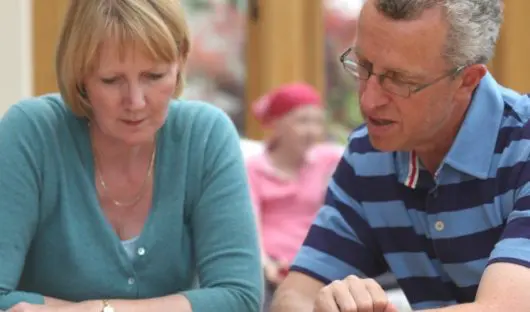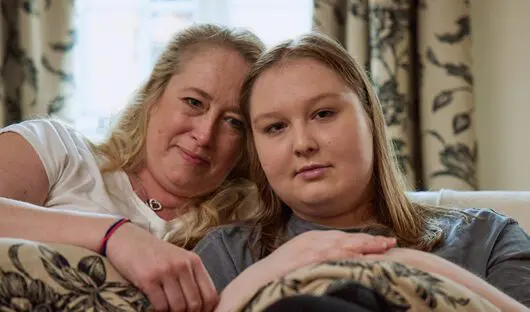Dealing with extra travel costs
The chances are you’ll need to travel for your child’s treatment. Whether it’s minutes or miles away from home, these trips can feel exhausting, stressful and expensive. If you’re struggling to meet the costs, make the most of the extra support available to help look after your bank balance.
First steps
Start by speaking to the team at your hospital to find out whether any of your child’s care is able to take place in a hospital closer to home. This is called ‘shared care’.
Some hospitals run their own transport schemes, so it’s worth asking about this if you’re going back and forth a lot.
If you need to travel a long way, ask your team if there’s any free accommodation near the hospital you could stay at. Young Lives vs Cancer has Homes from Home near some hospitals, and there are Ronald MacDonald houses at others.
Claim back your costs if you’re on low income
If you or your partner receive one of the qualifying benefits (and meet any related criteria), or have been named on an NHS Low Income Scheme certificate, you might be able to claim back your cash using the Healthcare Travel Costs Scheme. If you’re in Northern Ireland take a look at the information here instead.
You’ll be refunded for travel and parking for most appointments – so keep hold of your receipts! It’s worth noting that some services may not be covered (out of hour appointments, routine check-ups or screening). The cost of travelling to visit your child in hospital isn’t covered either.
If your child is 16 or over they can make their own claim, probably under the Low Income Scheme.
You can claim back any ‘reasonable travel costs’. This could be the cost of your petrol, car parking, toll charges, or public transport. If you need to use a taxi, it’s best to check with your care team first as this may not be covered.
In most cases you will be able to claim up to three months after the date you travel. It’s also possible to claim advance payments to help you attend appointments.
Travelling to Central London? Check to see if you can claim back congestion charges with the Congestion Charge NHS Reimbursement Scheme.
You would normally go the the cashier’s office at your child’s hospital, but check whether there are alternative arrangements at the moment because of coronavirus.
If you or your partner receive a qualifying benefit you’ll need to bring evidence to show this. If you think you may qualify under the Low Income Scheme, you’ll need a certificate HC2 (full help) or HC3 (partial help). You can apply for this by filling in form HC1. This is available from local NHS hospitals, dentists, opticians and pharmacists. Here’s a few more ways you can get your hands on the form too.
England: You can download and print off a form or order one to be posted to you using the NHS Low Income Scheme website.
Scotland: The same as above. Or you can also get a form at GP practices, Citizens Advice Scotland offices and Jobcentre Plus offices.
Wales: You can download and print off a form on the Welsh Government website or you can order one by email. You can also call 0845 6031108 (select the option for health publications). Jobcentre Plus offices may also stock them.
Northern Ireland: You can download and print off a form using the NI Direct website.
You can also get more information from the ‘Help with Health Costs’ team on their Facebook page.
Cut down parking charges
Parking charges vary. In Scotland and Wales most costs have been scrapped, and in Northern Ireland parking is free for chemotherapy and radiotherapy patients.
The news isn’t so good if you’re in England as each hospital sets its own rate. But there are some things you can do to help cut costs:
- Check with your Patient Liaison Service (PALS) to see if your hospital has any parking concession schemes
- Check whether you are eligible for the Blue Badge Parking Permit. Some hospitals will provide reduced or free parking for holders
- If you are on a low income, see the above information about the Healthcare Travel Costs Scheme.
Nab a new set of wheels
Using the Motability Scheme, you can exchange your child’s mobility allowance for a new car, scooter or powered wheelchair – and make adaptations if you need to stow a wheelchair, for example.
Parents of carers can order a car on behalf of their child. Or if your child is of driving age they can benefit from this themselves and nominate you as the named driver.
Your child must have at least 12 months remaining of:
- Higher rate mobility component of Disability Living Allowance (DLA)
- Enhanced rate mobility component of Personal Independence Payment (PIP).
The cost of insurance, servicing, maintenance and breakdown assistance will be covered, along with up to two named drivers.
The scheme is run by the national charity Motability who also provides charitable grants. Take a look to see if your child is eligible.
Save on vehicle tax
If your child is receiving the higher or enhanced rate mobility components of DLA or PIP, then you won’t have to pay vehicle tax.
You can also get a 50% reduction if your child gets the standard rate mobility component of PIP.
You can only have one vehicle exempt from tax and it must only be used for your child’s needs. You can claim the exemption when you apply for tax.
In Scotland? Check out the Young Patients Family Fund
If you live in Scotland, you might be able to claim for the costs of your travel (as well as food, and in some cases, accommodation) through the Young Patients Family Fund. This Fund provides financial support to families and carers of young people (under 18) receiving inpatient hospital care in Scotland.
To make a claim, you need to get a claim form (you can download one from the website) and either submit it to the cash office in your treating hospital or post it to the hospital’s NHS Health Board.
For more details, to check if you’re eligible, and for support with making a claim, visit the website on the above link.
Spend less on travel
Here’s a few more savvy ideas that could help you save money.
Car insurance:
- Compare quotes before you accept your renewal policy. It’s dull, but worth doing. Use comparison sites online to save time
- Protect your no claims bonus to keep your premium down. Don’t forget to tell a new insurer about it too
- Try and pay it in one lump sum if you can. You’ll be charged less if you pay it annually rather than monthly
Petrol: Look out for offers and use loyalty schemes to get money back on fuel. Be a smart spender and avoid the most expensive petrol stations in your area.
Parking fines: If you’ve received a fine, check to see if it’s valid before you cough up the cash. Make sure the firm that issued the fine is a member of the British Parking Association’s Approved Operator Scheme. It’s a good idea to make the payment as quickly as you can, as it will usually be half the cost if you pay within a certain amount of time.
Buying a new vehicle: Choose one with a low tax band and find out how fuel efficient it is. You can find calculators online to help you do this. Band A cars are not subject to any car tax and could also save you money through lower fuel costs. Also, make sure you check out the Motability Scheme if your child receives the higher or enhanced rate mobility components of DLA or PIP.
Your child may have a lowered immune system so check with their consultant or nurse to make sure it’s safe to travel on public transport.
If you are on a low income and receiving benefits, the hospital may reimburse part or all of your travel costs, so remember to keep your receipts.
Free hospital transport may be available if your child has clinical needs that make using public transport impossible.
Railcards: The Disabled Persons Railcard costs £20 a year. If you live in England, Scotland or Wales, you could get a third off rail fares.
Not sure if they qualify? They do. From the day they are diagnosed they automatically meet the Equality Act definition of ‘disabled’.
A 16-25 Railcard costs £30. If you often use trains it’ll be worth having as you can get a third off each time you travel. You or child will need to be within the age bracket.
If you live in Northern Ireland, visit the Translink website for find out what concessionary travel schemes are available to you.
Concessionary bus travel: There are different schemes available in different parts of the UK. In some cases a companion is able to travel with you for free, so take a look below to find out.
- England – free bus travel for people with disabilities on gov.uk
- Northern Ireland – free bus travel and concessions on nidirect
- Scotland – older and disabled person’s scheme on Transport Scotland
- Wales – concessionary bus fares for the elderly and disabled on the Welsh Government website.
Travel insurance for a child with cancer can be expensive, however reasonably priced insurance is available if you know where to look. Our travel insurance guide will help you find an insurer who will provide the cover you need, without breaking the bank.


